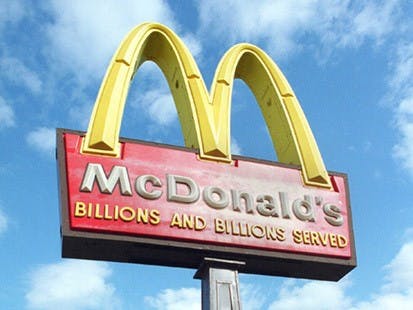See update below
I’ll admit it: we need to change how health care is run in this country. It’s ridiculous that in many states, you can’t get a decent plan without being employed by a company.
When I was working as an independent contractor last year, I was lucky enough to have a spouse whose plan covered me in an affordable way. Many folks aren’t in that position and have to opt for an expensive COBRA plan, an individual plan with low limits on what it would cover (and pre-existing condition exclusions), or go without one at all.
So I had always hoped that health care reform would break this perverse bond with employment. It has always been wrong to blame companies for bad health care insurance decisions, crappy wellness plans, or passing on premium increases in the face of other pressing business issues.
Unfortunately, what came out of health care reform legislation was some serious entrenching of the status quo when it came to an employer’s place in the health care loop. New burdens were put on companies already overburdened with regulation but to my (and apparently many others) surprise was how many were opting out completely.
Enter McDonald’s
While McDonald’s hasn’t been a beacon of responsibility in the fast food world, they’ve tried to do what they can to help insure some of their employees. But as The Wall Street Journal points out, that’s going to end for a large portion of their workforce:
While many restaurants don’t offer health coverage, McDonald’s provides mini-med plans for workers at 10,500 U.S. locations, most of them franchised. A single worker can pay $14 a week for a plan that caps annual benefits at $2,000, or about $32 a week to get coverage up to $10,000 a year.
Last week, a senior McDonald’s official informed the Department of Health and Human Services that the restaurant chain’s insurer won’t meet a 2011 requirement to spend at least 80 percent to 85 percent of its premium revenue on medical care.
McDonald’s and trade groups say the percentage, called a medical loss ratio, is unrealistic for mini-med plans because of high administrative costs owing to frequent worker turnover, combined with relatively low spending on claims.
So McDonald’s is getting pushed out of the market because a one-size fits all plan doesn’t work for these non-traditional (but innovative) health care plans. The government is going to spend millions insuring these employees and their dependents. And while you could argue that the government was likely already paying millions of dollars ensuring parts of the McDonald’s workforce, isn’t any plan that helps reduce the government’s cost a positive?
The end of health plan innovation
This has to signal the end of other alternative health care plans as well, right? I was on a high deductible health care program later in college and in the early part of my career. If my employer wanted to sponsor one for employees, why would they go through the hassle when regulations push them to take an easier route and telling them to get on a government plan.
And while it does help people get off of employer sponsored plans, I can’t imagine that’s how reform’s supporters imagined it happening.
I have to wonder what this market is going to look like in 10 years time? Are employers still going to be involved in health care coverage at all? Are we going to transition into single-payer health care coverage? Are the innovations going to come in the individual plan segment (even as some are dropping coverages due to increased regulation)?
McDonald’s health care plan may have rubbed you the wrong way as not being enough, but it was an innovative way of getting some affordable coverage to tens of thousands of workers who would otherwise be on state-run insurance or clogging up emergency rooms for simple treatments like the flu. By fueling a shutdown of programs such as these that aren’t in compliance with government mandates but help reduce the burden on the government, you’ve got to wonder if there is any incentive left for employers to innovate in this space or if they will choose, like Mickey D’s, to remove themselves completely.
Update 10/1/10 12:16pm ET: McDonald has claimed that the story reported is incorrect. From InsuranceNewsNet.com yesterday:
McDonald’s said Thursday in a statement it has been speaking with federal agencies to understand the law, but the company called reports that it planned to drop health care coverage for employees “completely false.”
The statement said McDonald’s was committed to providing competitive pay and benefits regardless of how regulations evolve over the next several months. The company said most of its franchisees offer limited-benefit health plans to its hourly workers.
Even if they choose to change the health plans, it is likely going to mean an increase in price for either employees or franchises. Neither one of those options is going to make anyone happy.
